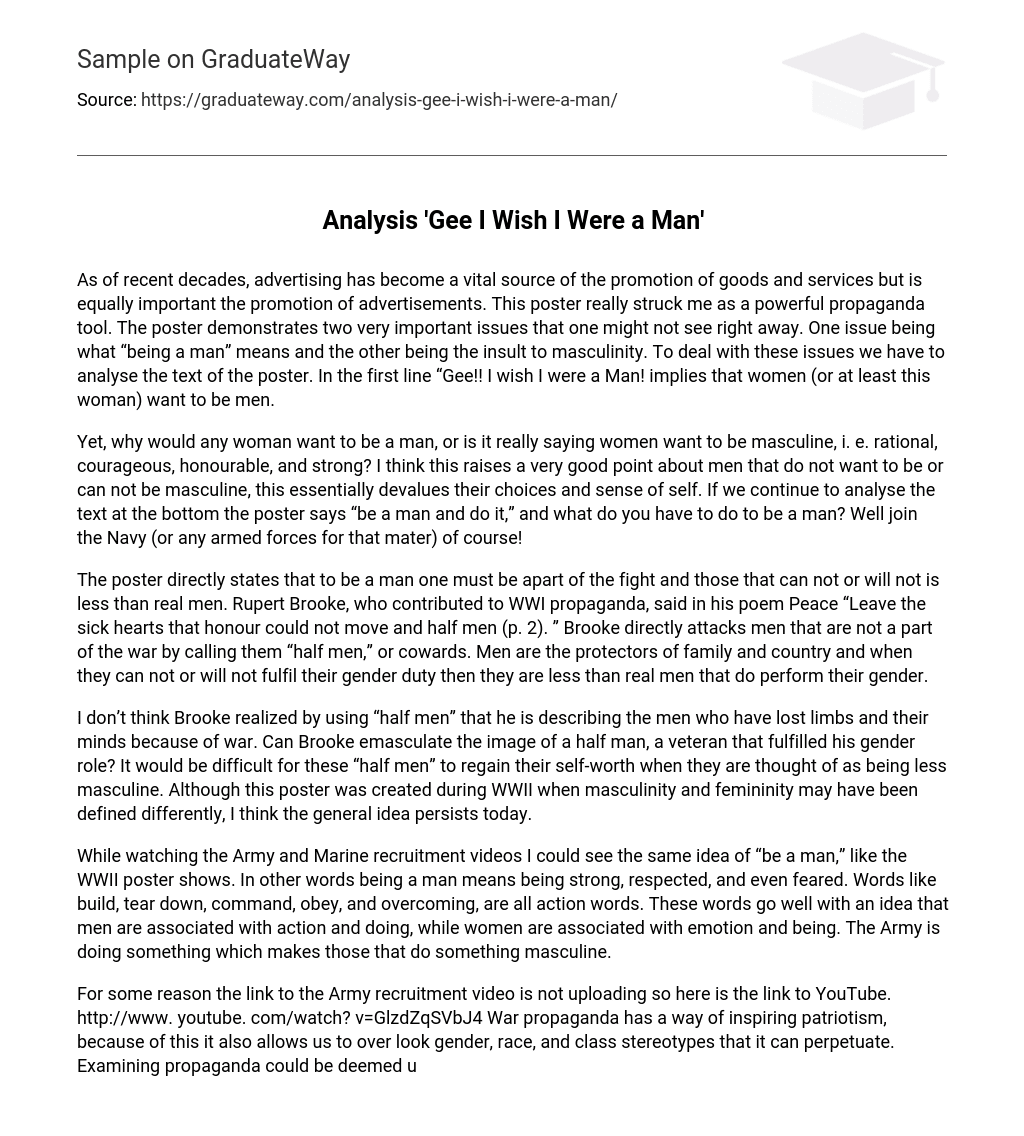As of recent decades, advertising has become a vital source of the promotion of goods and services but is equally important the promotion of advertisements. This poster really struck me as a powerful propaganda tool. The poster demonstrates two very important issues that one might not see right away. One issue being what “being a man” means and the other being the insult to masculinity. To deal with these issues we have to analyse the text of the poster. In the first line “Gee!! I wish I were a Man! implies that women (or at least this woman) want to be men.
Yet, why would any woman want to be a man, or is it really saying women want to be masculine, i. e. rational, courageous, honourable, and strong? I think this raises a very good point about men that do not want to be or can not be masculine, this essentially devalues their choices and sense of self. If we continue to analyse the text at the bottom the poster says “be a man and do it,” and what do you have to do to be a man? Well join the Navy (or any armed forces for that mater) of course!
The poster directly states that to be a man one must be apart of the fight and those that can not or will not is less than real men. Rupert Brooke, who contributed to WWI propaganda, said in his poem Peace “Leave the sick hearts that honour could not move and half men (p. 2). ” Brooke directly attacks men that are not a part of the war by calling them “half men,” or cowards. Men are the protectors of family and country and when they can not or will not fulfil their gender duty then they are less than real men that do perform their gender.
I don’t think Brooke realized by using “half men” that he is describing the men who have lost limbs and their minds because of war. Can Brooke emasculate the image of a half man, a veteran that fulfilled his gender role? It would be difficult for these “half men” to regain their self-worth when they are thought of as being less masculine. Although this poster was created during WWII when masculinity and femininity may have been defined differently, I think the general idea persists today.
While watching the Army and Marine recruitment videos I could see the same idea of “be a man,” like the WWII poster shows. In other words being a man means being strong, respected, and even feared. Words like build, tear down, command, obey, and overcoming, are all action words. These words go well with an idea that men are associated with action and doing, while women are associated with emotion and being. The Army is doing something which makes those that do something masculine.
For some reason the link to the Army recruitment video is not uploading so here is the link to YouTube. http://www. youtube. com/watch? v=GlzdZqSVbJ4 War propaganda has a way of inspiring patriotism, because of this it also allows us to over look gender, race, and class stereotypes that it can perpetuate. Examining propaganda could be deemed unpatriotic but its messages can not be expressed with stereotypes because it diminishes the patriotism that it is trying to show. Gee!! I wish I were a man Illustrator – Howard Chandler Christy Model – Mrs. Nancy Christy





